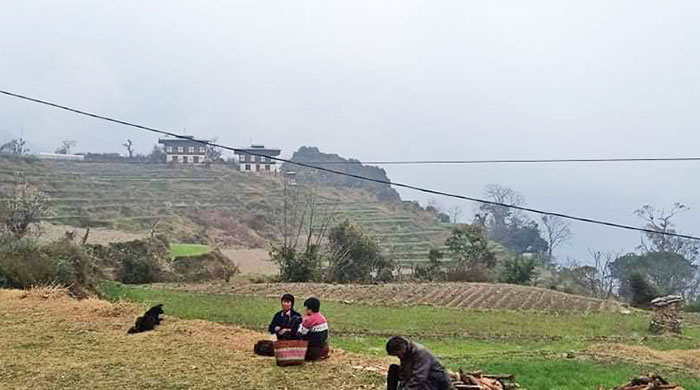Phurpa Lhamo | Wangdue
For about 20 households in Ruecheykha, performing funeral rites, attending a nyungne (religious fasting) or offering prayers during an auspicious day means having to walk about 2 hours to Jala village.
Without a lhakhang in the village, people from Ruecheykha have been travelling to Jala Lhakhang, located about 9km from the village, for years.
According to a Ruecheykha farmer, Lem, the need for a lhakhang was felt most when performing funeral rites.
Ruecheykha people have to travel to Jala with loads to perform gewa rites.
Ruecheykha and Jala are connected with a 9km farm road, but farmers have to walk when the road condition worsens during monsoon.
“It’s particularly difficult for the elderlies who take about three hours to reach Jala from Ruecheykha,” Gyeltshen, 61, said.
He added that most times people of Ruecheykha perform the rites inside their home despite space constraints. “If people have relatives, they go to Jala and perform the rites. But if not, they have to do it here.”
Ruebisa Gup Karma Wangdi said that the village didn’t have a separate lhakhang as it fell under Jala chiwog.
Local government officials, reportedly, are trying to seek permission for land to construct a lhakhang.


